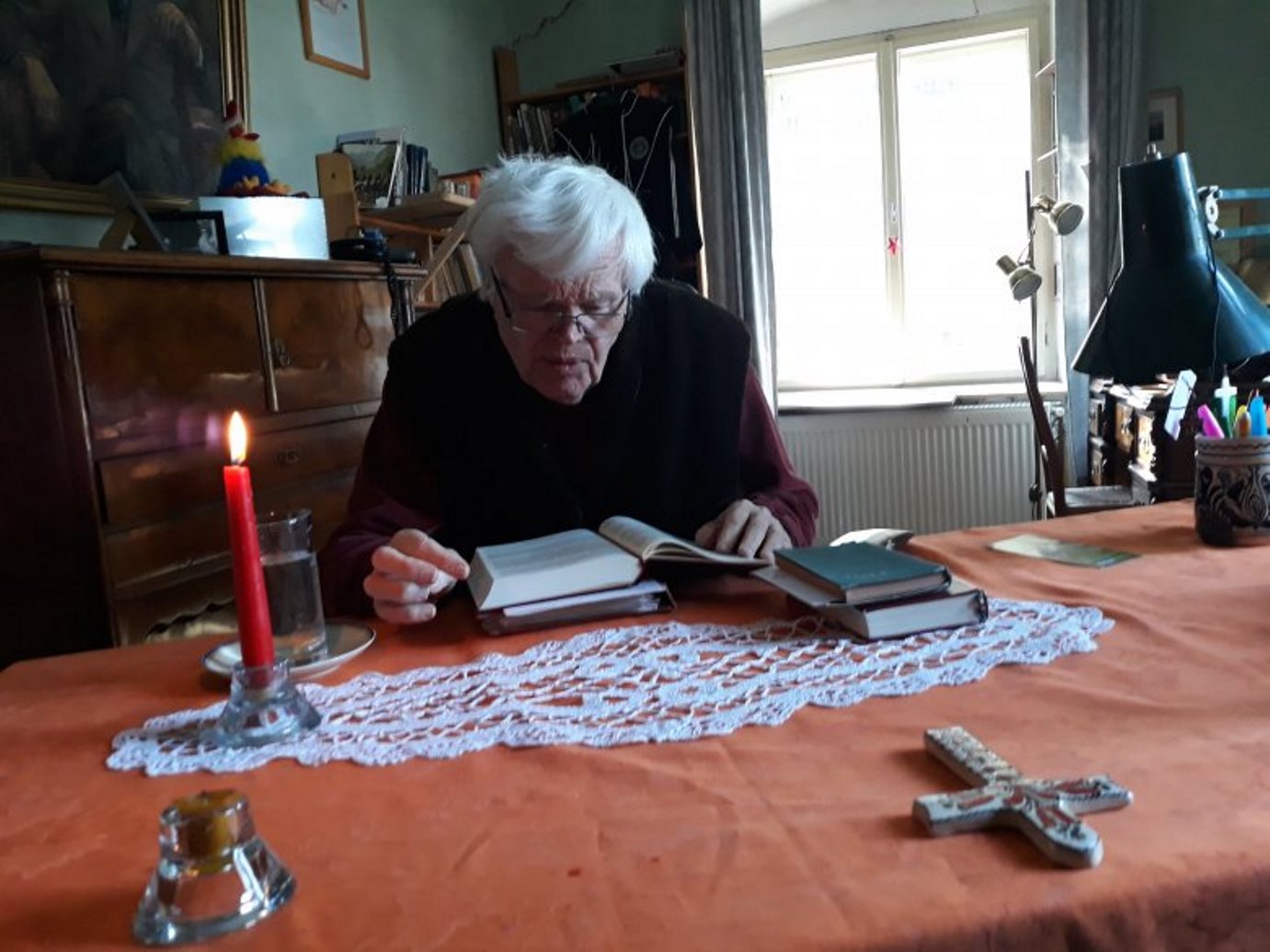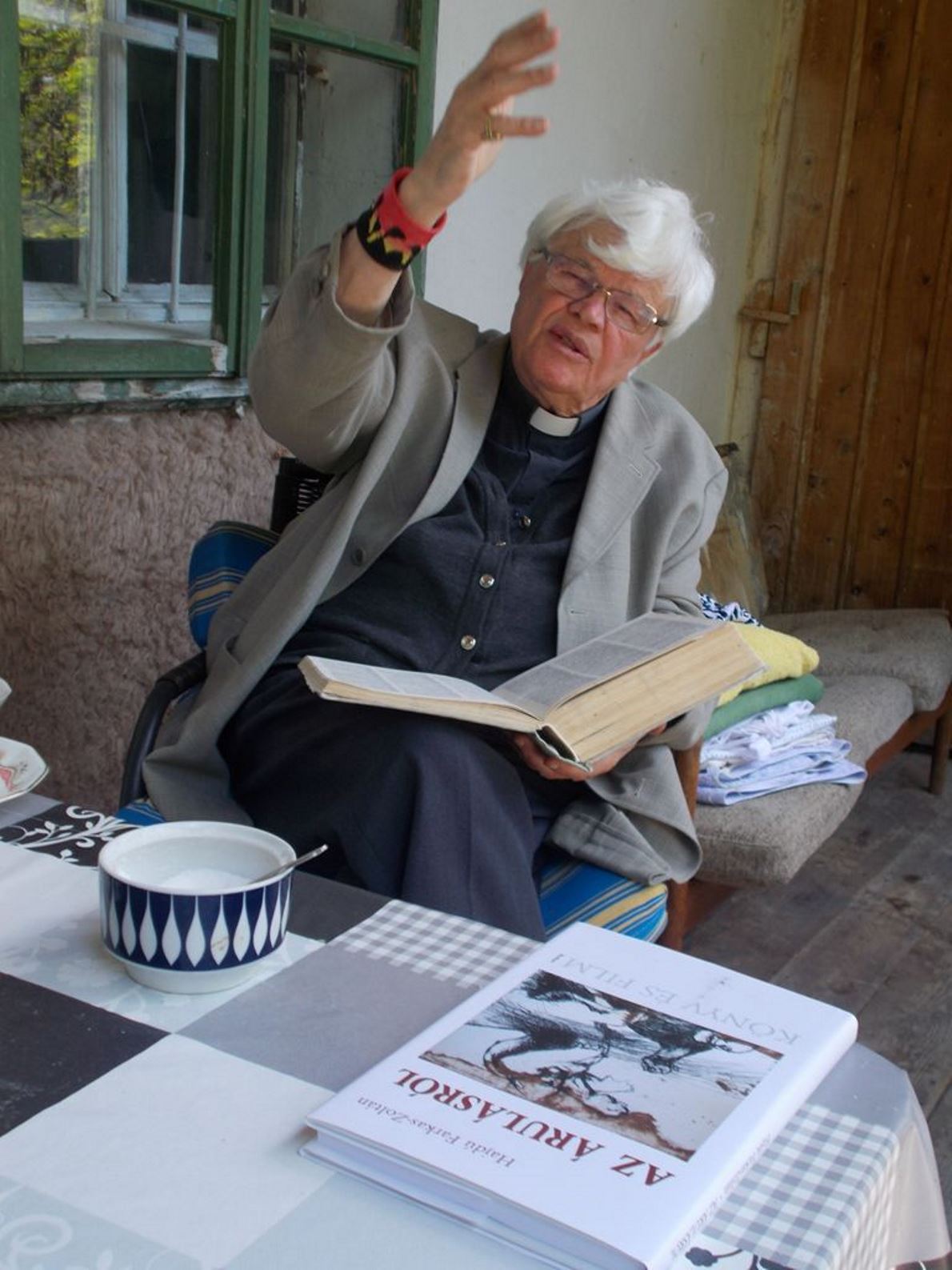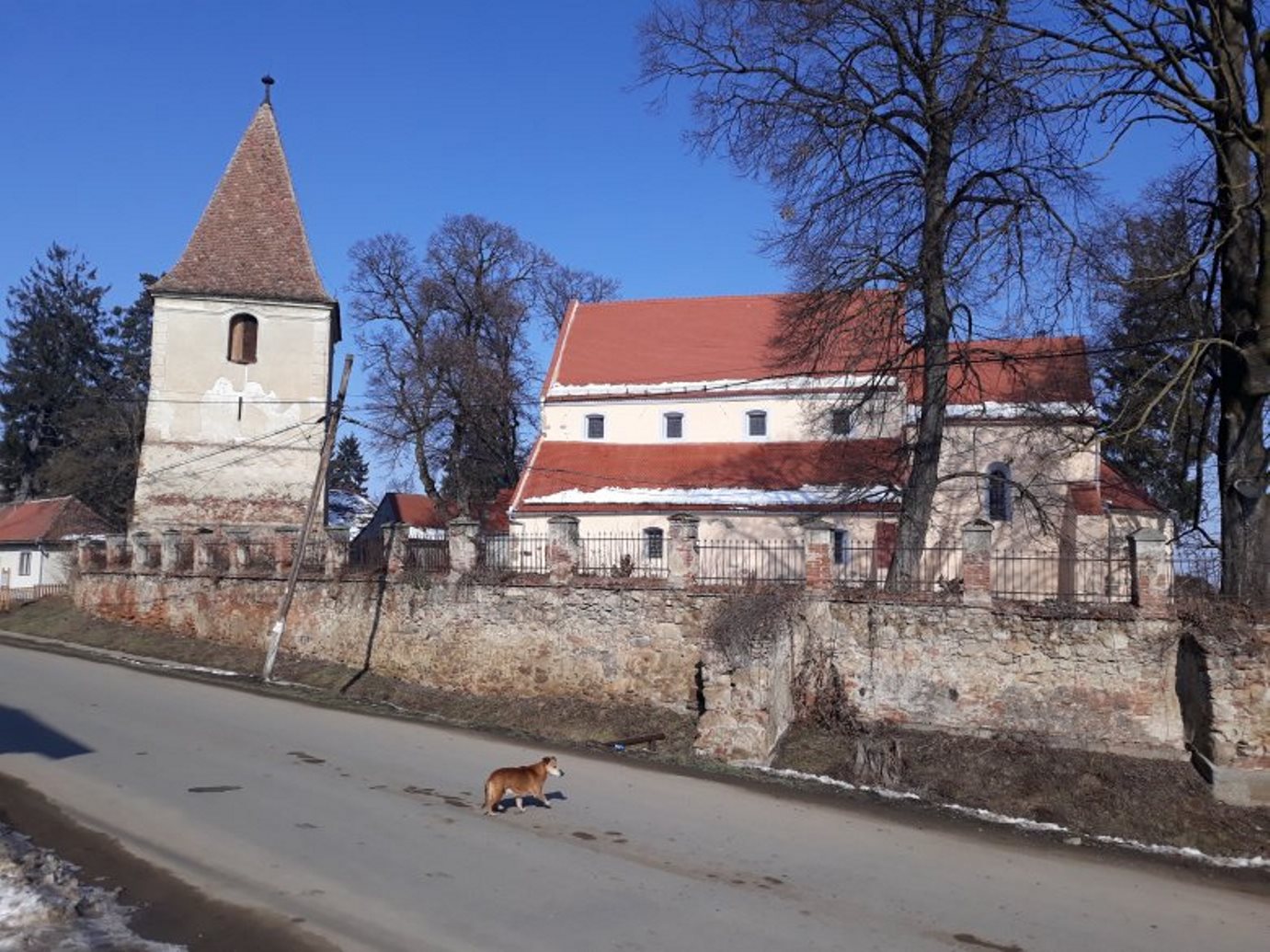The 86 years old Lutheran pastor of Rothberg (Veresmart in Hungarian and Roșia in Romanian) Eginald Norbert Schlattner had to watch his congregation shrink from seven hundred to only four souls after the collapse of communism as the Saxons moved to Germany from the small South-Transylvanian village. But despite human logic he decided to stay.
“Each Sunday for fourteen years, week after week – with only one or two exceptions per year – I was preaching in the empty church for the empty benches…”
He told erdelyinaplo.ro that this was the only way for him to survive without going crazy as the eight centuries old congregation was disappearing before his eyes. “Preaching in an empty church is depressing. But it would had been even more depressing not doing it. I chose to do it for two reasons: I wanted to comfort God by doing it, and I wanted to comfort myself as well.”

When Schlattner arrived to the village of Rothberg as a novice pastor in 1978, he used to have about 700 believers. Although before the Treaty of Trianon in 1920, the number of the Saxons was almost twice as many, this community seemed still viable taking into consideration that on third of it were children. But still, twelve years later -during only a couple of months- basically everybody left. From the seven hundred only four church member left: the pastor and three of his believers who became later so old and sick, that they couldn’t even walk to the church for the mass anymore.
They were still here at Easter but were gone by Christmas
“After the change of regime at Easter the church was still full. All of them were here. By Christmas almost nobody. We huddled together like in the Bethlehem Crib. Those were terrible times. Each Sunday I was reading long list of names: the names of those who left to Germany during the past week.” – he said. He still can hardly believe that what neither the Turks nor the Tatars could achieve during centuries, the Romanian communist and post-communist regimes could in only few decades: sell out and persecute the Saxons from Transylvania.
He also talked about how the anti-Hungarian pogrom of the Black Spring in Marosvásárhely/Târgu Mureș contributed to the community’s decision. “Many of them asked me back then: who would protect us if they will attack us as well? We are fewer and weaker than the Hungarians. And what could I answer to these questions?….”

Eginald Schlattner wrote down the Transylvanian Saxons’ tragedy in his best selling novels, which were translated into eight languages. Two of them, the “Der geköpfte Hahn” and the “Rote Hanschuhe” -which are also translated to Hungarian under the titles of “Fejvesztett Kakas” and “Vörös kesztyű” and to Romanian: “Cocoșul decapitat” and “Mănuși roșii”- raised the attention of movie director Radu Gabrea as well, who screened both novels. (You can watch the first one here in German with Romanian subtitles)
“I felt I had two options: to hang myself, or to write.”
– he explained the reason why he started writing after his congregation left -within a year- in an earlier interview in 2016 for maszol.ro.
“I was awarded with doctor honoris cuasa title by Babeş-Bolyai University. The Ministry of Foreign Affairs appointed me as the cultural ambassador of Romania. I received cross of merit from the Austrian state, but I still do not consider myself a writer. I’m a simple Transylvanian pastor, who carries his cross and does his job.
I didn’t wanted to settle down in Germany, and I didn’t even ask for citizenship, despite both my wife, my children, and all my relatives emigrated. I have to serve my flock here…
…at least what has been left from it. The mixture of faith, pain and despondency motivated me in the writing of the three books.” – he said.
Eginald Schlattner is the 99. pastor in the life of the congregation in Rothberg, (Ritbarch as the Saxons say), the 51st since the conversion to Luther’s faith, but also the last one. By comparison the first orthodox priest arrived to the village in 1905. In five years the Lutheran church will be 800 years old, while the first orthodox church was built only 120 years ago. The Saxons had been living in this area in the past eight centuries, while the first Romanian shepherd families came down from the nearby mountains around 1750.

God heard his prays, the church is not empty anymore
“I was asking the Almighty for fourteen years to show the church’s door for somebody, to one person at least. And here we are, my prays were heard: the benches are not empty anymore.” – he said, and he is right.
These days the church is not empty. Few people visit the Sunday masses. Not the old Saxons though, but others: Orthodox Romanians, and Gypsies. Father Eginald calls each of them by their names at the bilingual ceremonies and sometimes ask them some rhetorical questions as well. One of the new church members is Carmen, who is also the housekeeper of the parsonage. She escaped from his aggressive brother a few years ago from the gypsy settlement and since then she found not only peace but job as well in the church. “If she wouldn’t exist, I would be in a nursing home since a long time, where people would wait for my death.” – admitted the Saxon pastor manfully.
Title image: Eginald Schlattner preaching for the empty benches in 2016. (Photo: Zoltán Pengő/maszol.ro)